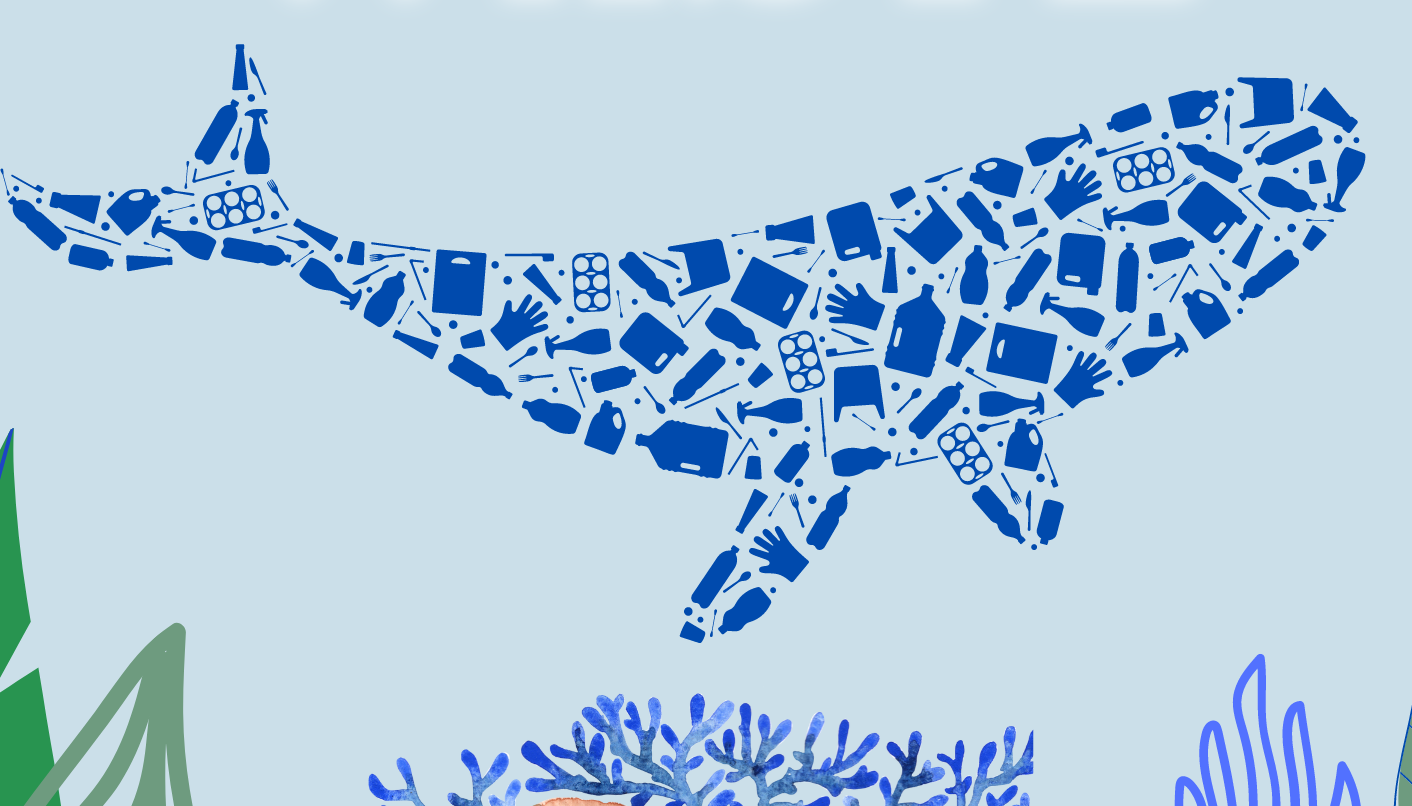
If you’re on a journey to reduce the plastic waste in your life, (go, you!) you’ve likely already shifted your habits to start buying secondhand, recycling, and using reusable water bottles, shopping bags, and food containers. If you’re like us, you’re probably ready to think outside of the box and find some fresh new ways to continue your commitment to reducing plastic waste and pollution. Check out our five unique ways to reduce plastic waste!
1. Consider Your Clothing

Did you know that the fabrics used in your clothing are contributing to plastic waste? It is estimated that up to 30% of microplastics in the ocean come from synthetic textiles, such as acrylic, nylon, polyester, and fleece, according to the International Union for Conservation of Nature. These fibers are shed from your clothes in the washing machine, then often making their way to wastewater plants and eventually rivers, lakes, and oceans.
That said, consider choosing clothing made of natural fibers and materials, such as cotton and wool. These natural fibers break down over time, and some can even be composted. Plus, buying clothing made out of these higher-quality materials means they will hold up longer, so you won’t need to replace them as often.
2. Buy in Bulk
While we typically wouldn’t recommend buying items in excess as it can be wasteful, this isn’t the case when it comes to certain items that you know you’ll use. Certain food products and non-perishables purchased in bulk can help reduce plastic packaging of single use items. Flour, grains, rice, beans, pasta, nuts, coffee, and cereal are some examples. Avoid buying any produce or items that perish quickly in bulk to reduce food waste.
And of course, opt for purchasing these items with eco-friendly and/or recyclable packaging when you have the option (and don’t forget to bring your reusable shopping bag).
3. Grow Your Own Food
That’s right, you can start a small garden in your backyard to reduce plastic waste! By growing your own food items such as fruits and vegetables, you’re limiting your purchases of single-use plastic containers and bags that commonly come with our berries, grapes, leafy greens - the list goes on.
Not only are you directly reducing plastic waste by growing your own food, but you’re also reducing the carbon footprint associated with producing and transporting these goods! (Plus, it will taste better knowing you’ve grown it yourself!).

4. Boycott Microbeads
Small but mighty, microbeads are detrimental to our oceans and environment. Microbeads are the tiny plastic particles commonly used as exfoliants in many beauty and personal care products. Their size allows them to easily pass through water treatment plants and end up in our ocean, harming our marine life who often mistake them for food.
Don’t worry, boycotting microbeads doesn’t mean you have to simply live with your dead skill cells. Try swapping your microbead-filled beauty products for ones that contain natural exfoliants such as coffee grounds, sugar, sea salt, or jojoba beads. You can also make your own scrub at home with these natural exfoliants, combining them with honey, coconut oil, or essential oils.
5. Switch to Nix Mouthwash
Plastic waste in your bathroom adds up, especially when it comes to those large, plastic mouthwash bottles. In fact, it adds up so much that each year, over 500 million plastic mouthwash bottles end up in landfills and oceans. That’s enough to wrap around our earth three times!

Nix Mouthwash is your plastic-free alternative to traditional mouthwash, in the form of dissolvable crystals. Nix comes in a compact, reusable glass jar, and shipped in 100% recyclable material.
So, how does Nix Mouthwash work? Using the provided bamboo scoop, simply scoop the mouthwash crystals into a cup or container of water, and increase the flavor strength to your liking by adding additional scoops. A jar of Nix lasts approximately 4-6 months.
Made with only natural ingredients, Nix Mouthwash alcohol-free, non-toxic, and leaves your breath smelling minty and feeling fresh.
Nix Mouthwash is made with your health and Mother Nature in mind. Learn more about Nix and get your first jar here!
